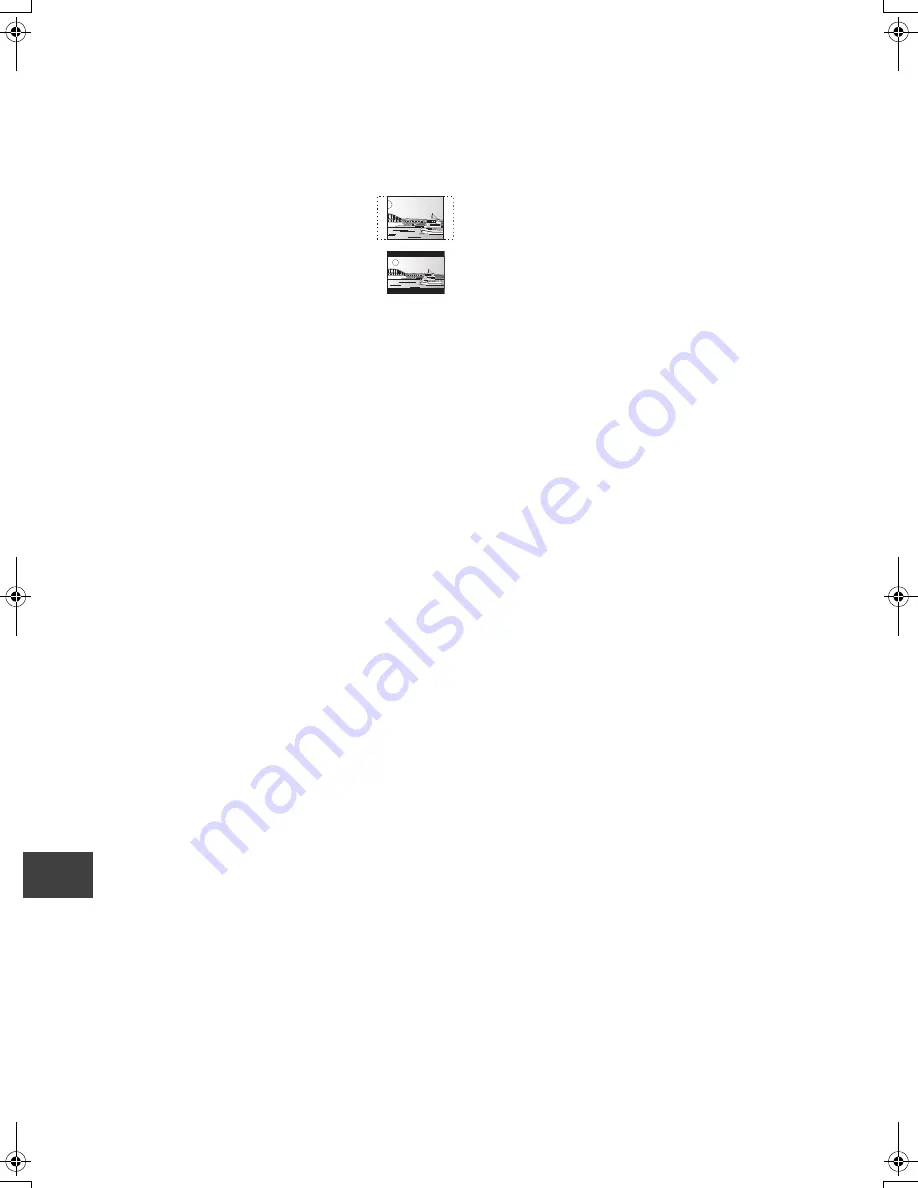
Re
fe
re
nc
e
VQT2J57
118
Glossary
Pan&Scan/Letterbox
In general, DVD-Video are produced with the
intention that they be viewed on a widescreen TV
(16:9 aspect ratio), so images often don’t fit regular
(4:3 aspect ratio) TVs. Two styles of picture, “Pan &
Scan” and “Letterbox”, deal with this problem.
Progressive/Interlace
Interlace is a conventional image signal that displays
the image in 2 phases by splitting the display into odd
and even scans.
Progressive will display whole image in 1 scan.
Therefore, it will give High Definition image without
flickering compared with interlace.
Protection
You can prevent accidental deletion by setting writing
protection or deletion protection.
Sampling frequency
Sampling is the process of converting the heights of
sound wave (analog signal) samples taken at set
periods into digits (digital encoding). Sampling
frequency is the number of samples taken per
second, so larger numbers mean more faithful
reproduction of the original sound.
Signal Quality
This is the guide for checking the aerial direction. The
numbered values displayed do not indicate the
strength of the signal, but the quality of the signal (the
signal to noise ratio, or “S/N”). The channels you can
receive are affected by weather conditions, seasons,
time (day/night), region, length of the cable that is
connected to the aerial, etc.
Thumbnail
This refers to a miniature representation of a picture
used to display multiple pictures in the form of a list.
x.v.Colour
TM
x.v.Colour
TM
is a name for devices that are compatible
with the xvYCC format, an international standard for
expanded colour in motion pictures, and that follow
the rules for signal transmission.
You can enjoy vivid colours of wider colour ranges for
a more realistic picture when connected to a TV that
supports the x.v.Colour
TM
with HDMI cable.
1080i
In one High Definition image, 1080 (1125) alternating
scan lines pass every 1/50th of a second to create an
interlace image. Because 1080i (1125i) more than
doubles current TV broadcasts of 480i (525i), the
detail is much clearer and creates a more realistic
and rich image.
1080p
In one High Definition image, 1080 (1125) scan lines
pass at the same time every 1/50
th
of a second to
create a progressive image. Since progressive video
does not alternate scan lines like interlace, there is a
minimal amount of screen flicker.
720p
In one High Definition image, 720 (750) scan lines
pass at the same time every 1/50
th
of a second to
create a progressive image. Since progressive video
does not alternate scan lines like interlace, there is a
minimal amount of screen flicker.
Pan & Scan: The sides are cut off so
the picture fills the screen.
Letterbox:
Black bands appear at the
top and bottom of the
picture so the picture itself
appears in an aspect ratio
of 16:9.
DMR-XS380EB-VQT2J57_eng.book 118 ページ 2010年4月26日 月曜日 午後7時8分
Summary of Contents for Diga DMR-XS380
Page 122: ...Reference VQT2J57 122 ...







































